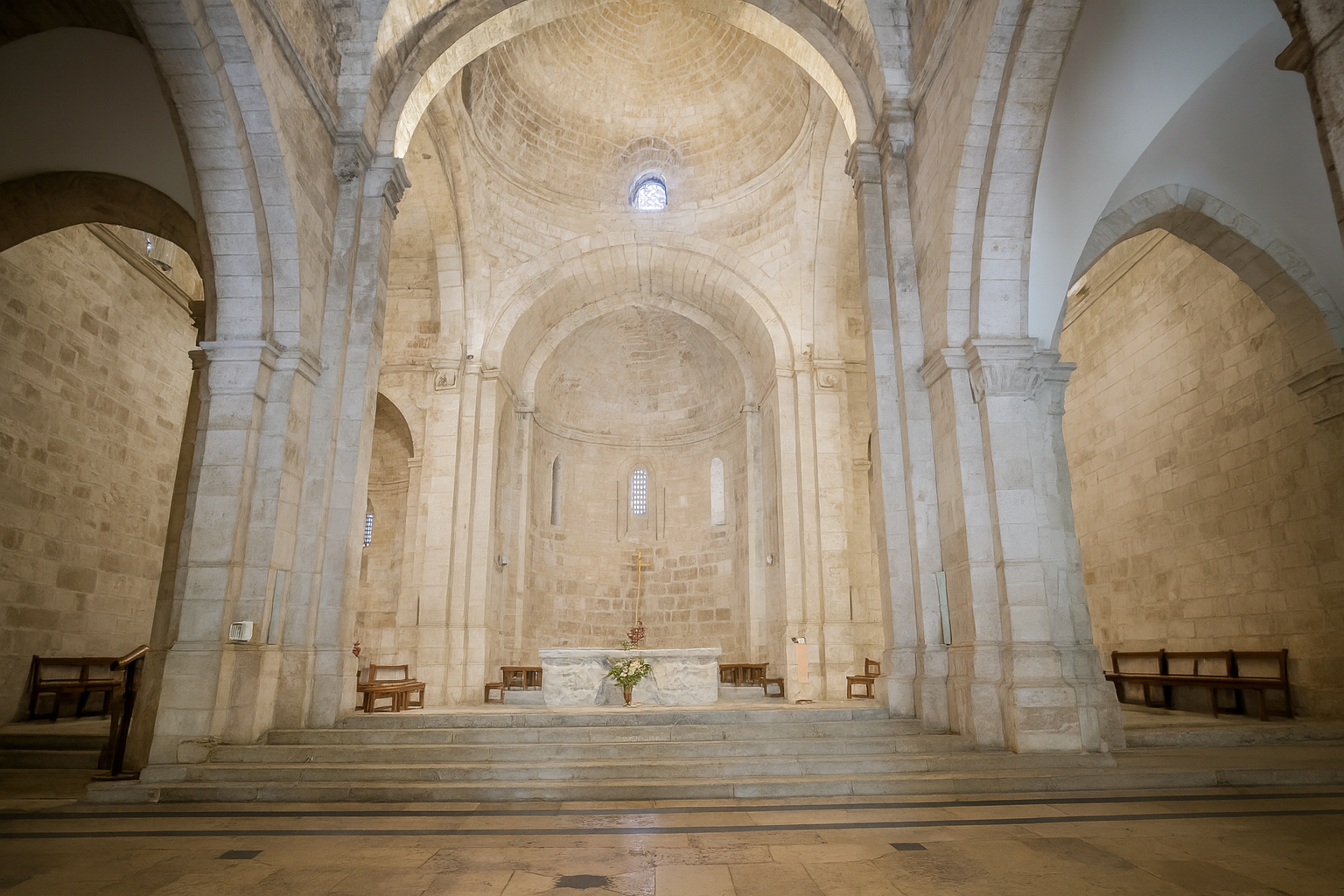Have we lost reverence for God in today’s churches?
When I traveled to Israel recently, the churches built on holy sites stirred something in me: an ancient value for reverencing the Lord. Their structures, art, and silence echoed holiness and majesty. While I’m not suggesting we copy every Orthodox or Catholic ritual, I do think they’ve preserved something many Protestant churches have set aside:
Reverence. Awe. The fear of the Lord.
Of course, some traditions can drift into legalism or distance from an intimate, loving God. But the danger on the other side is just as real: casualness that forgets His majesty.
Jesus took fishermen and made them fishers of men. They caught fish for a living, and now they would catch men for God. What does that mean? They used to catch fish and turn them over to their consumer. Now they’re to catch men and turn them over to their Creator. In natural fishing, the fish are pulled out of life and brought into death (aka, someone’s meal). It’s the opposite in spiritual fishing: men are rescued from death and brought into life. This article will equip you for that ministry.
We are living in a time when God is cleaning His house and calling His people for service. It is a time of awakening, and God wants “all hands on deck.” You have an important role to play in the end times harvest of souls coming to Jesus. The move of God is here—the question is, are you ready for service?
Now, more than ever, is the time to preach the gospel. People are open, the world is broken, and Jesus is the answer. The harvest truly is plentiful; we just need the laborers (Matt. 9:37).
After the tragic assassination of Charlie Kirk, many flocked to churches. It’s a sign that people are getting in touch with their need for God. This is why we must preach the gospel to the world around us.
It’s awakening time! It is a turning point for America!
Praise is more than a song—it’s a supernatural weapon where God dwells. But tough times often try to steal our song and weigh us down. That’s when we rise up and declare God’s greatness in praise, and in doing so, experience His Presence and His power.
Every one of us has felt the sting of a harsh word…or the lift of a well-timed encouragement. But what if your words carry more weight than you realize? What if your voice is part of how Heaven wants to bless the earth? In a world full of cynicism, curses, and criticism, God is looking for people who will speak like He speaks—who will bless.
This isn’t just about positive thinking or being nice. According to Scripture, you’ve been commanded to bless. That means your words aren’t just personal—they’re priestly.
Let me show you why this matters.
The Presence of God is the believer’s natural habitat—the place we were made for. I’m not just talking about God being everywhere (omnipresence), but about His manifest Presence—when He shows up in a real and tangible way. Sometimes He comes with power, other times with peace. But talking about His Presence isn’t enough. We need to experience Him—and David’s life gives us a framework.
All across America, the 4th of July is a celebration of freedom. But long before our nation declared independence, God declared liberty through the Year of Jubilee—a sacred time when servants were released, land was returned and what was lost in hard times was restored by God’s design.
Yet, there’s no biblical record of Israel ever celebrating it.
Why?
Because freedom costs. And ultimately, only One could fully pay the price: Jesus Christ, our true Jubilee.
Have you ever experienced the kind of praise that actually shifts the atmosphere?
I’m not talking about a go-through-the-motions praise—a passive kum-ba-yah while sipping a lukewarm coffee. I’m talking about when life is tough, the adversary is doing everything he can to shut you down, and yet—you give God a praise anyway. And when you do, something shifts. You get revitalized, refreshed, and strengthened because God shows up.
And here’s the truth—God wants to release breakthrough in your life. But the key to accessing that breakthrough is praise.











We need the manifest Presence of God.
God is omnipresent—everywhere at all times—but He is not always manifest present, meaning present in a felt, tangible way. It is His Presence and power that change our lives and satisfy our souls.
Without His Presence, we are mentored by a lower-level atmosphere, and we begin to come to conclusions that are unbiblical and unhelpful. This is why the Presence and power of God matter so deeply. Yes, we need the power of God to reach the world (Acts 1:8), but we also need the power of God to disciple the Church.